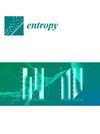多世界解释框架下的自我定位概率。
IF 2.1
3区 物理与天体物理
Q2 PHYSICS, MULTIDISCIPLINARY
引用次数: 0
摘要
对意识主体自我定位概率概念日益增长的兴趣产生了多重争议。考虑到David Albert的设置,他描述了他对概念一致性的担忧,我确定了这些争议的来源,并认为以可操作的方式定义“自我”为量子世界中代理的自我定位概率提供了令人满意的意义。它保留了对自我定位的主观无知而对宇宙状态的无知这一重要特征。它还允许在量子力学的多世界解释中定义玻恩法则,并从一些自然假设中证明它。本文章由计算机程序翻译,如有差异,请以英文原文为准。
Probability of Self-Location in the Framework of the Many-Worlds Interpretation.
The growing interest in the concept of probability of self-location of a conscious agent has created multiple controversies. Considering David Albert's setup in which he described his worries about consistency of the concept, I identify the sources of these controversies and argue that defining "self" in an operational way provides a satisfactory meaning for the probability of self-location of an agent in a quantum world. It keeps the nontrivial feature of having subjective ignorance of self-location without ignorance about the state of the universe. It also allows defining the Born rule in the many-worlds interpretation of quantum mechanics and proving it from some natural assumptions.
求助全文
通过发布文献求助,成功后即可免费获取论文全文。
去求助
来源期刊

Entropy
PHYSICS, MULTIDISCIPLINARY-
CiteScore
4.90
自引率
11.10%
发文量
1580
审稿时长
21.05 days
期刊介绍:
Entropy (ISSN 1099-4300), an international and interdisciplinary journal of entropy and information studies, publishes reviews, regular research papers and short notes. Our aim is to encourage scientists to publish as much as possible their theoretical and experimental details. There is no restriction on the length of the papers. If there are computation and the experiment, the details must be provided so that the results can be reproduced.
 求助内容:
求助内容: 应助结果提醒方式:
应助结果提醒方式:


